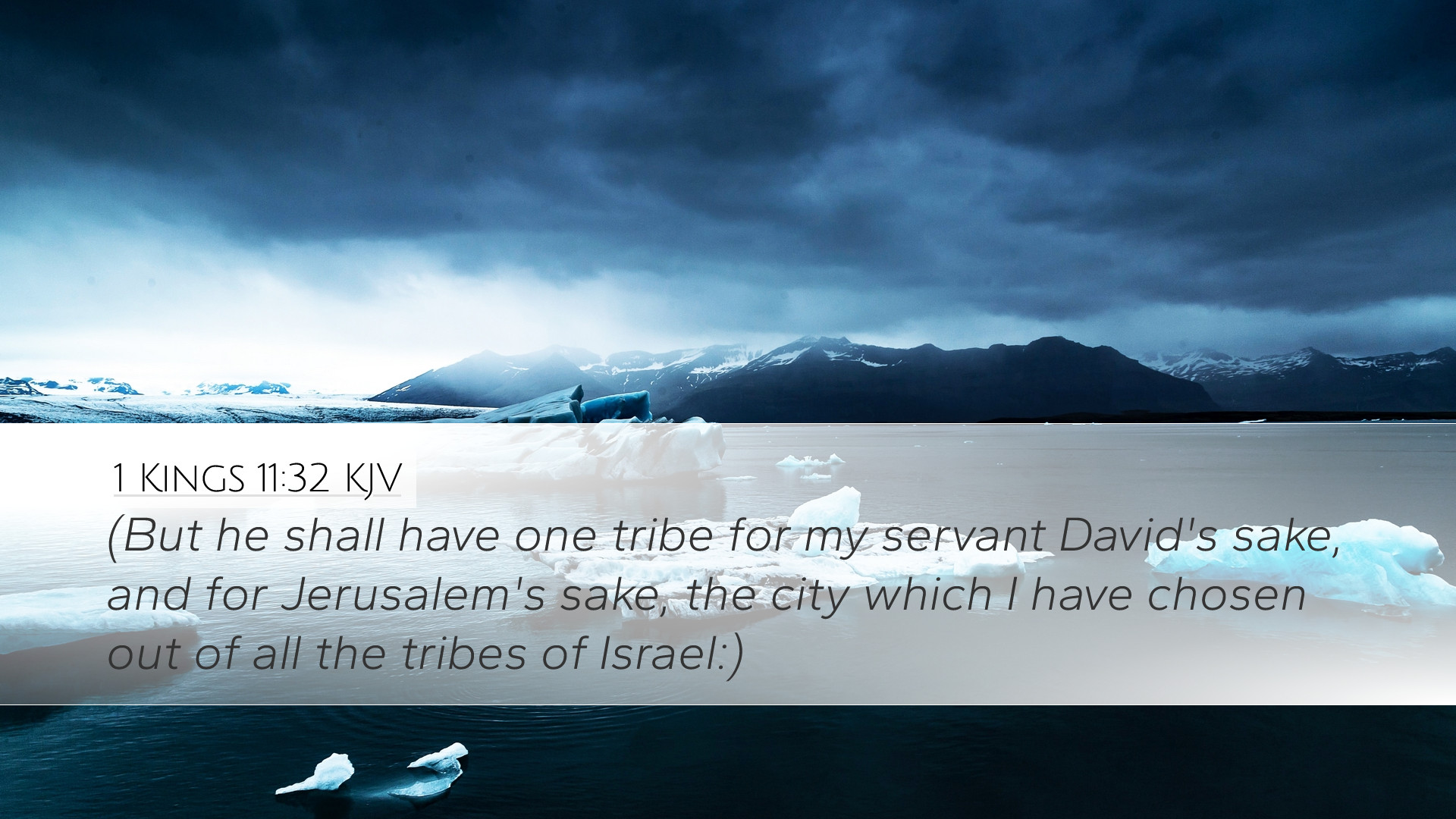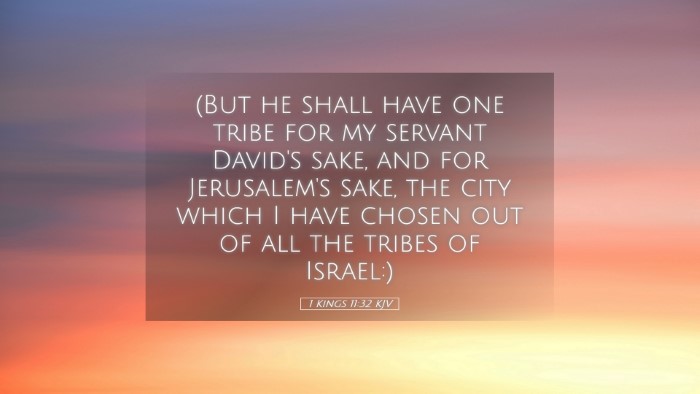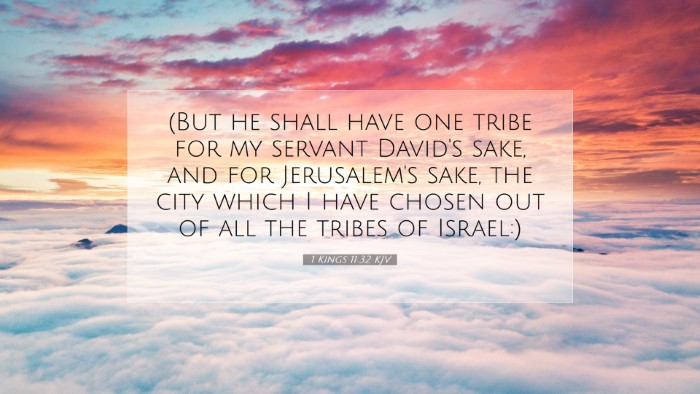Commentary on 1 Kings 11:32
Verse Reference: 1 Kings 11:32
This verse reads: “But he shall have one tribe, for my servant David's sake, and for Jerusalem's sake, the city which I have chosen out of all the tribes of Israel.”
Contextual Background
The context of 1 Kings 11 details the reign of King Solomon and the subsequent division of the kingdom of Israel. The chapter describes how Solomon's idolatrous practices led him away from the Lord, resulting in divine judgment and the prophecy of the kingdom's division. Here, we find the severing of the united monarchy, resulting in the eventual establishment of two kingdoms: Israel and Judah.
Theological Insights
God’s Sovereignty and Divine Election
In this verse, we observe the theme of God's providence and election. The preservation of one tribe, Judah, serves as a testament to God's faithfulness to His promises to David. As interpreted by Matthew Henry, this act illustrates God’s sovereignty, as He chooses to maintain a remnant through which He will fulfill His covenant with David.
1. Preservation for David’s Sake
David, characterized as “a man after God’s own heart,” receives consideration due to his faithful service to God. As Barnes notes, it was not because of the merit of Solomon or the people, but solely because of God's promise to David. Judah's existence as a tribal entity is a tangible fulfillment of divine promise amidst human failure.
2. Focus on Jerusalem
This verse emphasizes Jerusalem's significance as the chosen city. Albert Barnes comments on the importance of Jerusalem, highlighting its role as the spiritual capital of Israel, where God’s presence dwelt. The favor shown to Jerusalem signifies the enduring nature of God's covenant relationship with His people, underlining His commitment to blessing what He has chosen.
Historical Implications
The preservation of Judah hints at the future unfolding of redemptive history. Adam Clarke elaborates on the implications of this division, indicating that from Judah would come the Messiah. Thus, this verse not only serves historical significance but also prophetic, pointing towards the lineage of Christ originating from David's tribe.
Applications for Today
For pastors and theologians, this verse offers a rich vein of application. It serves as a reminder of God’s unchanging nature and his ability to work through a remnant. In times of crisis within the church or among leaders, one may find solace knowing that God can preserve His purpose through a small group of faithful individuals.
- Reliance on God’s Promises: Believers are encouraged to cling to the promises of God even in times of uncertainty.
- Importance of Faithfulness: The maintenance of David’s lineage stresses the value of faithful service to God, which serves as an example for leaders today.
Conclusion
The essence of 1 Kings 11:32 is rooted in the overarching narrative of God’s faithfulness. It is a profound declaration of hope amidst division and decay, reaffirming the faith of the remnant and the eternal plan of God through His chosen people. As elaborated in historical and theological contexts, it serves to assure us of God's sovereign choice and the continuation of His redemptive work through the ages.
In summary, this single verse encapsulates a pivotal moment in the biblical narrative, challenging our understanding of God's election, history, and His enduring promises through both triumph and failure.


